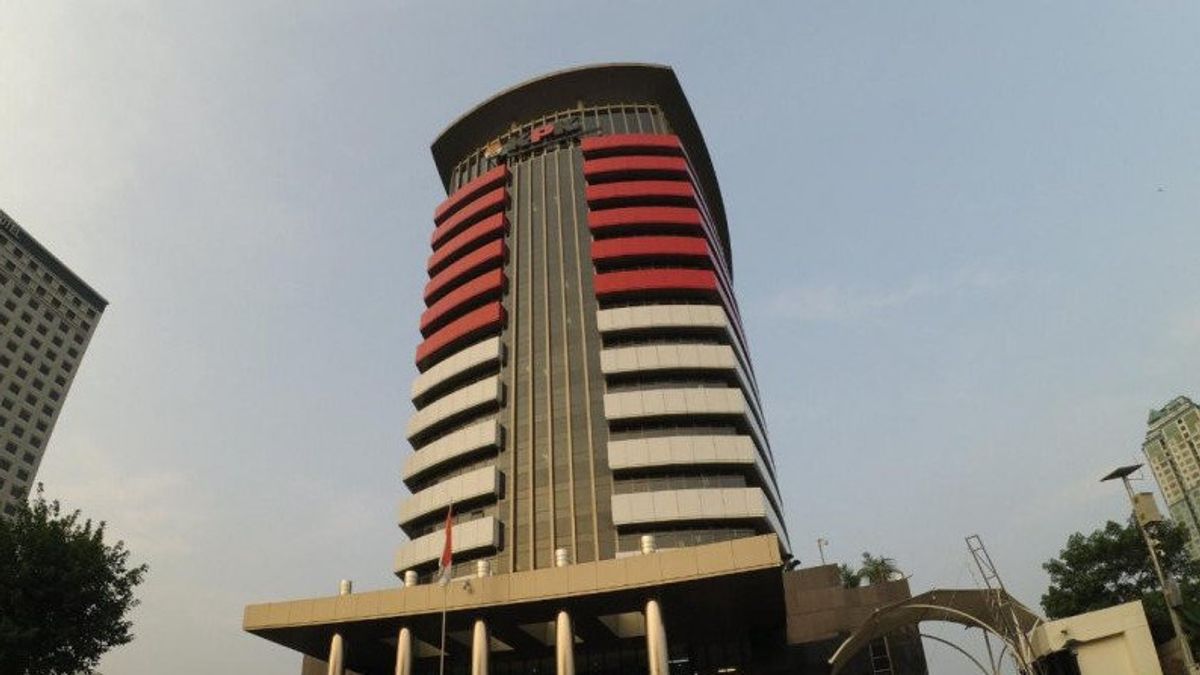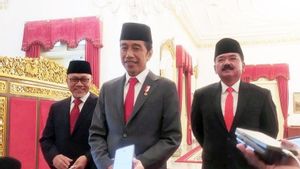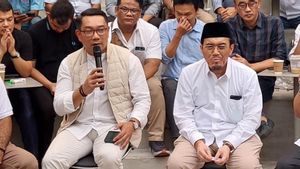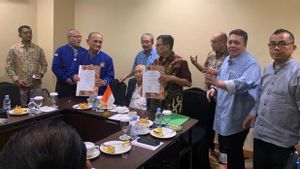JAKARTA - The Clean Indonesia Coalition (KBI) urges the Corruption Eradication Commission (KPK) to submit a judicial review (PK) to the Supreme Court on the acquittal of PT Borneo Lumbung Energi and Metal Tbk (PT BLEM) boss, Samin Tan.
The coalition consisting of Auriga, YLBHI, PWYP Indonesia, and Indonesia Corruption Watch (ICW) also urged the KPK to re-examine the decision of the Supreme Court (MA).
"The Clean Indonesia Coalition encourages the KPK to take extraordinary legal measures in the form of a judicial review of the Supreme Court," said ICW Coordinator for Legal Affairs and Judicial Monitoring, Lalola Easter, as quoted from a written statement on Monday, June 20.
This legal step, continued Lalola, can be tried even though the Constitutional Court (MK) has prohibited the public prosecutor from submitting a judicial review.
However, before this legal action is carried out, the anti-corruption commission is asked to first conduct an examination of the decision of the first instance court at the Corruption Court at the Jakarta District Court to the Cassation.
Not only that, but this coalition also encourages the Supreme Court to examine Samin Tan's decision. In addition, the Judicial Commission (KY) and the Supervisory Body of the Supreme Court are also monitoring this decision.
"KY and the Supervisory Board of the Supreme Court take firm steps if there are allegations of violations of the code of ethics and guidelines for judges' behavior by the panel of judges at the first level or on cassation," he stressed.
The efforts of the KPK Public Prosecutor (JPU) to ensnare the mining businessmen failed. This appeal was made after Samin Tan was acquitted by the Jakarta Corruption Court.
"The decision was rejected," was quoted from the site.
The appeal filed by the KPK prosecutor was registered with number 2205 K/PID.SUS/2022 and entered the Supreme Court on April 1.
Meanwhile, at the first level, Samin Tan was sentenced to 3 years in prison and a fine of Rp. 250 million, subsidiary to 6 months in prison before finally being acquitted.
In consideration, the Corruption Court's Panel of Judges consisting of Panji Surono, Teguh Santoso, and Sukartono stated that the act of giving gratification has not been regulated in Law Number 31 of 1999 as amended by Law Number 20 of 2001 concerning Eradication of Criminal Acts of Corruption.
SEE ALSO:
Previously, the Corruption Eradication Commission (KPK) said it respected the Supreme Court's decision which upheld Samin Tan's acquittal verdict. But, on the other hand, the anti-corruption commission considers this decision to set a bad precedent.
"We respect the court's decision but of course, it can set a bad precedent if the court's considerations do not look at the aspect of the mode of corruption which is so complex that law enforcement is not only based on textbooks," Acting KPK Spokesperson for Enforcement Affairs Ali Fikri told reporters, Friday, June 17th.
Law enforcement, continued Ali, should be carried out with an extraordinary perspective. Moreover, the KPK has worked hard to prove the alleged corruption committed by Samin Tan.
Ali said that all the evidence had also been prepared by the KPK Public Prosecutor (JPU) and presented in the trial process, both at the first level to the cassation.
"Starting from the statements of witnesses and electronic evidence, the conversations are very clear. We present and conclude in a legal analysis," he said.
"Of course, if the Supreme Court has a different opinion, we appreciate it. However, we also want to convey that in efforts to eradicate corruption, especially in taking action or handling cases, a joint commitment is needed that corruption is an extraordinary crime," concluded Ali.
The English, Chinese, Japanese, Arabic, and French versions are automatically generated by the AI. So there may still be inaccuracies in translating, please always see Indonesian as our main language. (system supported by DigitalSiber.id)
















